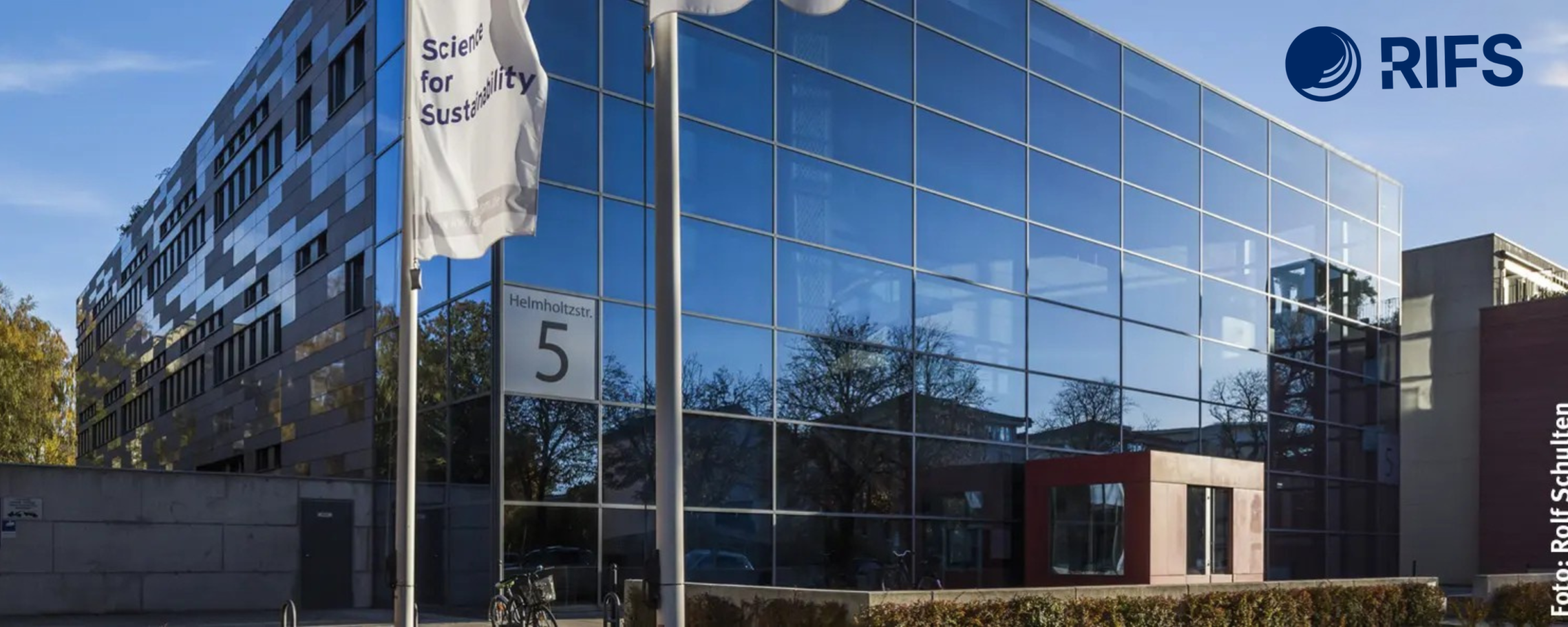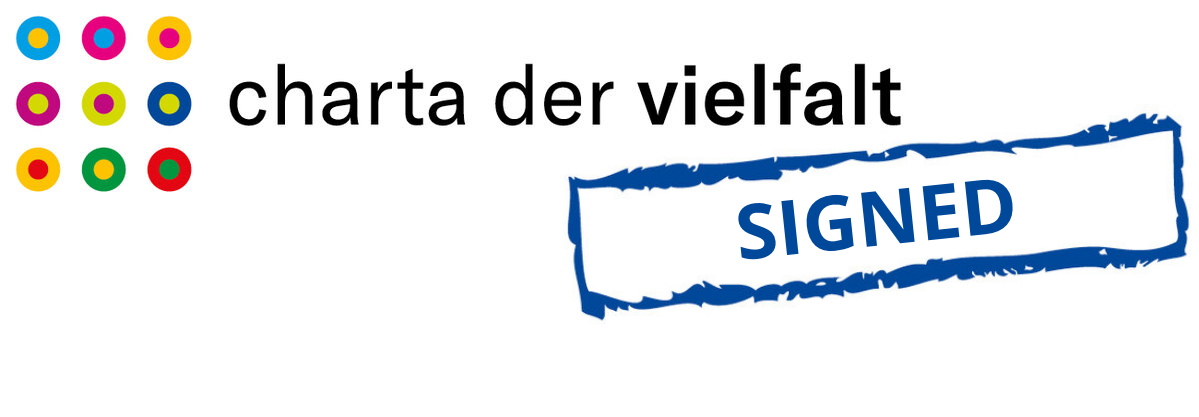Research Associate (f_m_x): Political and Social Sciences, Spatial and Planning Sciences - VELOCITY ADAPT

The Research Institute for Sustainability at GFZ (RIFS) conducts research with the aim of investigating, identifying, and advancing development pathways for transformation processes towards sustainability in Germany and abroad. The institute was founded in 2009 as the Institute for Advanced Sustainability Studies (IASS) and has been affiliated with the GFZ Helmholtz Centre for Geosciences under its new name since the 1st of January 2023 and is thus part of the Helmholtz Association.
For our research group Regional Sustainability Transformations, we are looking for a:
Research Associate (f_m_x): Political and Social Sciences, Spatial and Planning Sciences - VELOCITY ADAPT
Reference Number 10880
The successful candidate will work in the joint research project VeloCityAdapt, funded by the German Federal Ministry of Research, Technology and Space (BMFTR) under the programme Planning Acceleration for Climate Adaptation through Urban Digital Twins (UDT) (Planungsbeschleunigung für die Klimaanpassung mit Urbanen Digitalen Zwillingen, UDZ). The project develops and tests Urban Digital Twins (UDTs) as decision-making and participation platforms for municipal climate adaptation – combining visualisations (“what-if” scenarios) and innovative geo-/data analysis tools. The aim is to accelerate planning and participation processes, strengthen interdisciplinary collaboration, and increase both acceptance and proactive engagement among citizens.
Practice partners are two municipalities in North Rhine-Westphalia; project partners include the FernUniversität in Hagen (coordination), 52°North, ZDE, and LandPlanOS.
The RIFS sub-project Participatory Governance conducts the social science accompanying research. We analyse governance, organisational and participation contexts, identify stakeholder needs, and develop and test interactive collaboration and participation formats embedded in existing municipal planning processes. The focus is on user-centred, scalable formats that link UDT configurations and visualisations – with particular attention to rural areas and smart city data platforms in the partner municipalities.
In both municipalities, specific climate adaptation cases (e.g. heat stress, heavy rainfall/flooding, wildfire risks) will be examined using qualitative-empirical methods. Citizens and local administrations will gain insights into scenarios and measures; their feedback and co-design inputs will inform further development. The goal is to establish a socio-technical infrastructure enabling municipal staff without advanced IT skills to model scenarios and prepare data-driven decisions independently.
Your responsibilities:
- Empirical pre-studies & mapping: Systematic review of international research on (digital) participation and e-planning; mapping of governance contexts, actor landscapes, and planning processes in partner municipalities
- Fieldwork in living labs: Planning and conducting qualitative research (interviews, workshops, focus groups) on climate adaptation cases (e.g. heat stress, flooding)
- Co-design of collaboration formats: Developing, testing, and evaluating interactive collaboration and participation formats embedded in municipal planning processes
- User needs & requirements analysis: Collecting and analysing the needs of various target groups (administration, civil society, specialist departments), including barriers for less tech-affine groups; integrating results into design and implementation
- UDT-supported participation: Contributing to low-threshold UDT scenarios and “what-if” visualisations for transparent communication of complex content to administrations and the public
- Training & knowledge transfer: Supporting training sessions and workshops for partner municipalities; establishing and maintaining exchange and dissemination formats
- Scientific output: Independent analyses and (co-)authorship of academic publications and transfer outputs (e.g. policy briefs, guidelines); presentations at academic conferences; contribution to cross-project coordination
Your qualifications:
- Excellent academic degree (MA/MSc) in political/social sciences, sociology, or related disciplines (communication studies, spatial/planning sciences, geography, socioinformatics); a PhD is an advantage
- Solid knowledge of participation, governance, and engagement research; experience with co-design/participation formats and stakeholder mapping, ideally in/with local administrations
- Strong command of qualitative research methods (interviews, focus groups, document/discourse analysis); basic quantitative knowledge (e.g. survey design) is desirable
- Familiarity with (urban) digital twins, e-planning, or related geo-/data infrastructures; basic knowledge of GIS, data processing, or usability aspects is an advantage
- Initial experience in producing academic publications and transfer outputs (policy briefs, guides, recommendations, or contributions for practitioners/public audiences)
- Fluency in German and excellent command of English (spoken and written); ability to communicate effectively across disciplines.
- High degree of initiative, creativity, and organisational skills; ability to work both independently and as part of a team; confident in moderation and workshop facilitation
- Strong intercultural sensitivity and diversity competence; awareness of data ethics and fair participation processes.
- Willingness to travel to partner municipalities and enthusiasm for transdisciplinary collaboration at the interface of administration, civil society, science, and business
- Desirable: Experience with digital twins and/or visualisation tools
What we offer:
- Ambitious and varied tasks in a dynamic and international research environment
- State-of-the-art equipment
- Public service benefits
- Extensive training opportunities
- Professional career advice offered by our in-house Career-Centre
- Flexible working hours and conditions
- Support with finding a good work-life balance offered by benefit@work
- Institute day-care centre on site
Start date: As soon as possible
Fixed-term: 31st October 2029
Salary: The position is classed as salary group 13 according to “TVöD Bund (Tarifgebiet Ost)”. The salary group is determined on the basis of the Collective Wage Agreement and the respective personal qualifications.
Working hours: Part-time 50% (currently 19.50 h/week)
Place of work: Potsdam
Have we piqued your interest?
Diversity and equal opportunities are integral components of our human resources policy. The RIFS actively promotes diversity and explicitly welcomes applications from all qualified individuals, regardless of ethnic and social origin, nationality, gender, sexual orientation and identity, religion/belief, age and physical characteristics. Anyone who has been recognized as severely disabled, will be given preferential consideration in the event of equal suitability and qualification in accordance with the provisions of the German Social Code IX. In case of further queries regarding gender equality, please do not hesitate to contact our Equal Opportunities Officer.
‘Diversity in perspectives’ is a high value for us. As an integral part of supporting diversity at our centre, we actively promote women in science and in leadership positions. We among others do this through our gender equality plan and the cascade model measures which we actively implement to enable sustainable equal opportunities in academic career paths. We are thus committedly strives for gender equality in science, including in leadership positions, and strongly encourages women to apply.

Your personal data will be processed for the purpose of conducting the selection procedure on the basis of Art. 6 para. 1 b, Art. 88 GDPR in conjunction with Art. 26 of the Data Protection Act for the State of Brandenburg. After completion of the procedure, application documents will be deleted in compliance with data protection regulations.
In case of any further queries relating to the field of activity, please contact joerg [dot] radtke [at] gfz [dot] de (Dr. Jörg Radtke) via email. If you have any general questions about the application process, please contact our recruiting team at our phone number +49 (0) 331-6264-28787.